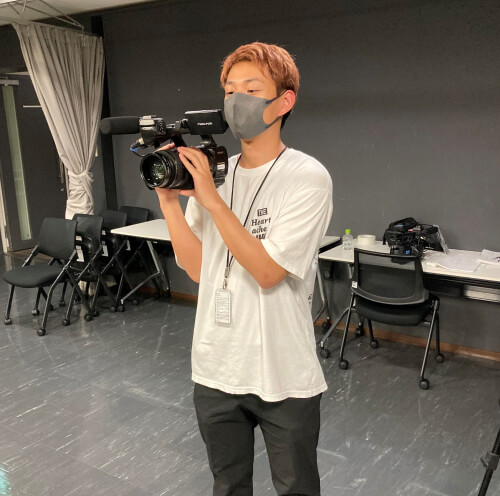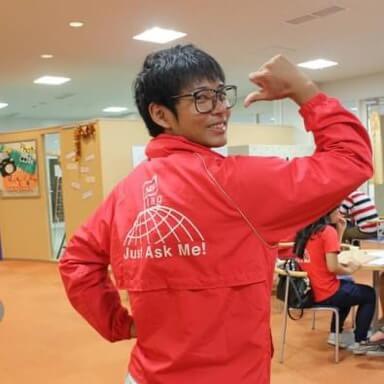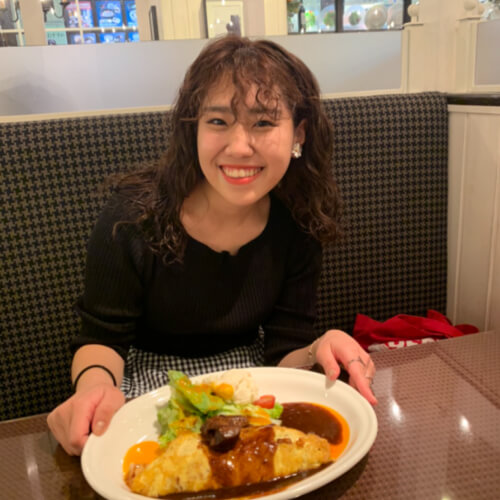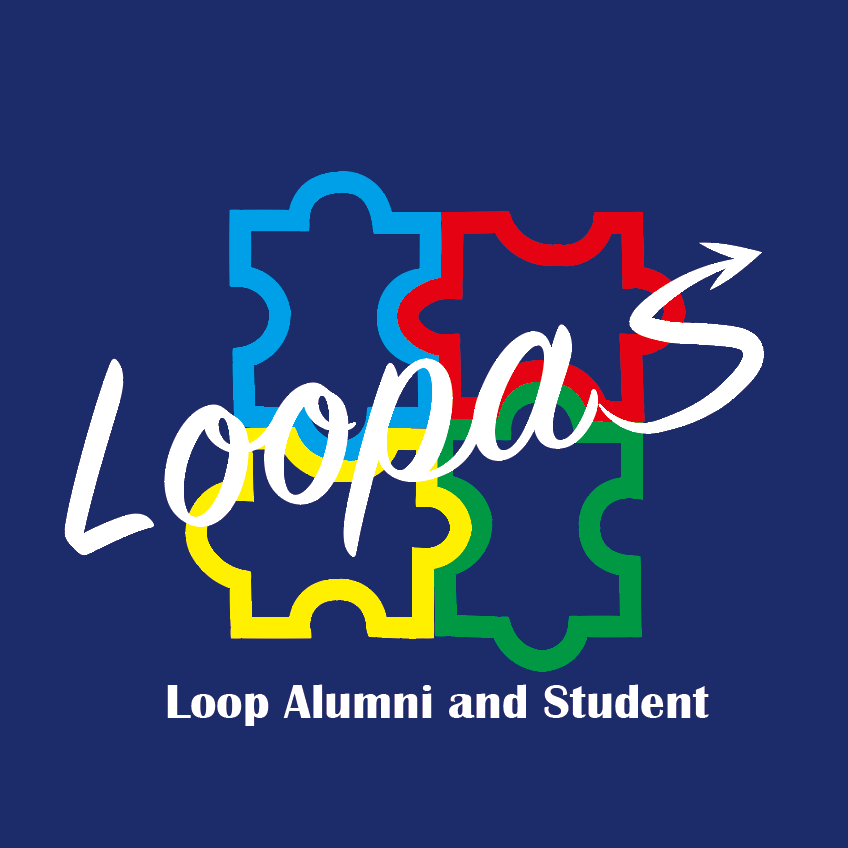5min read
Isao Takata is an APU alumnus and a television director. He wanted to work in the television industry since his time as a student, so just how did he spend his time at APU?

Alumni Profile
Name:Isao Takata
Graduation year:College of Asia Pacific Studies Class of 2015
Current workplace:TV production company Oidooon Co., Ltd. Production Department
Activities at APU:FLAG, TA, Theatrical group “KIZUNA”
■ Looking back on school days
What kinds of activities did you do at APU?
I was interested in the power of words, so I studied languages in seminars. I had many friends from Vietnam at APU, so I studied Vietnamese in addition to English, and even took Vietnamese IV. In language learning, I learned to think about the other person's feelings when communicating and how to say things kindly. This has helped me a lot in my current job on TV. On campus, I participated three times in FLAG activities to support new students, and even served as a leader. In addition, I tried various things such as TAing the new student workshop (currently multicultural collaboration workshop*), multicultural weeks, and theatrical circle.
*What is a multicultural collaboration workshop? https://www.apu.ac.jp/home/study/content55/
Did you take seminars?
I took Professor Hiroki Tahara’s seminar. When I took the teacher's linguistics lecture, I became interested in the history and origin of language, not to mention the professor himself was interesting. Also, the content was related to Vietnamese. When choosing a seminar, I recommend that you choose with a strong will to learn. I recommend Professor Tahara's classes to those who want to learn the power of words and the differences between languages. The history of body language and sign language also differs from country to country, so it may be suitable for those who are interested in such non-verbal languages.
How was your GPA?
I don't feel that I'm bad at studying, just that studying has led to various other kinds of learning. However, I cannot say that my GPA was good because lectures were difficult for me. At APU, many students are involved in a wide range of activities, so managing schedules and maintaining a good GPA are difficult.
In the spring semester of my 3rd year, I forgot my duties as a student. Between being a TA, FLAG, 4 multicultural weeks, my part time job, and circles, my grades fell. Extracurricular activities are also important, but students should keep in mind that their primary duty is to study, and that activities should not be distracting.

Mr. Takata working as FLAG
■Working in television
What do you do as a director?
A director's job is to shoot a TV program and edit it to be interesting while fitting it within the set broadcast time. I also give instructions to the actors, actresses, and camera operators who are working on the set.
Do you work with anyone from overseas in the television industry?
Most people at Japanese TV production companies are Japanese, but there are also Korean and Chinese people around. This is because TV stations commission production companies to produce TV programs. There are many foreign nationals in the TV station, but most of the production companies are Japanese. If anything, I have the impression that there are more international photographers and art staff. They are very useful to promote Japanese programs overseas.
Do you have any advice for those who want to enter this industry?
You don't need any kind of particular skill, but it's very hard after joining the company. Unlike TV stations, program production companies do not require a college degree or other educational background to join. Anyone can join. At first, you will work as an assistant director (AD) under the director. The AD will do miscellaneous tasks, such as interviewing, obtaining permission for filming, and negotiating schedules. The TV industry may look like a glamorous job, but it is actually a job with a lot of chores.
Did you have any difficulties at work?
When I first started, I couldn't take any days off for three months, and there were times when I couldn't go home for nearly two weeks. Since the AD basically works with the director, they cannot go home as long as the director is working. When I couldn't go home, I slept by putting 3 company chairs side by side. Also, it takes an average of 5 years to become a director, and some take more than 10 years.
Conversely, when do you feel that you are happy with your work?
I find it rewarding that basically no day is the same. You can learn from experience things cannot learn in school. And since it is a job related to television, I sometimes encounter celebrities and entertainers. It’s an environment where I can encounter celebrities in the hallway as well as on set. I find it surprising and interesting.
■To those who will leave APU for the wider world

With members of Theatrical group “KIZUNA”
Do you have any advice for APU students who are not sure what direction they want to take in the future?
Originally, I vaguely thought that I wanted to be an interpreter or volunteer overseas. I had dreams and sweet ideas about getting a job that would require me to wear a suit, but when I was looking for a job, those dreams became a reality. What I used at that time was an aptitude test on a job information site. Jobs related to announcers and mass media came out as recommended occupations, and I started researching from there. I'm not recommending that you use the online diagnostic tests to decide where to work, but I think it will give you a hint. Also, I think it is important to understand your own capacity.
Do you have any advice for current APU students?
Television work is tough both physically and mentally, but it is a rewarding job. The feeling of accomplishment when your name appears on the credits at the end of a TV program is like nothing else. Since APU students plan events and the like, I think it is one industry they can do well in. If you are interested in the industry and like creating, do your own research and take the first step. I really want APU students to challenge themselves.
Loop.A.S. Interviewer

Name: NUKUI MIYU
Collage: College of International Management (APM)
Greetings! I'm Miyu Nukui, currently in my 4th year as an APM student. Drawing, playing tennis, and my deep appreciation for records and coffee make up my cherished hobbies. I look forward to enhancing my communication skills through Loop.A.S., and my sincere hope is that Loop.A.S. will inspire all alumni and students at APU for their future endeavors. Thank you.
Loop.A.S.
The name says it all: student Organizations Loop.A.S. main goals are to connect APU alumni and the current students and to make chances for APU students through a variety of activities and events. And their activities are for both Alumni and Students. They work with the APU Alumni Association to create opportunities for alumni and students that they can meet, share knowledge, and gain better understanding of life after APU/in APU. The Student Blog posts interviews with alumni conducted by Loop.A.S.














